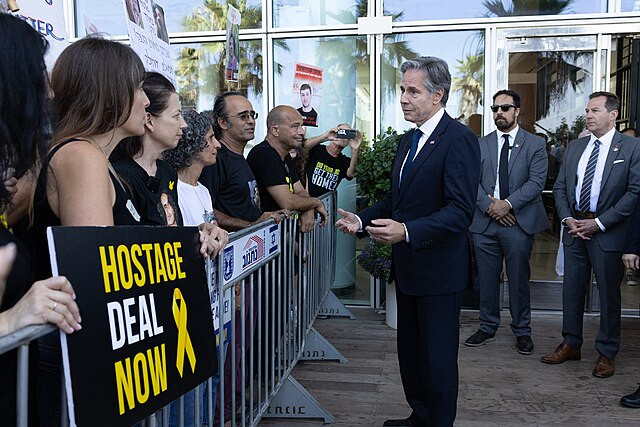Hamas has announced its acceptance of a United Nations Security Council resolution calling for a ceasefire. The militant group's acceptance of the resolution, which was adopted on Monday, has been confirmed by senior Hamas official Sami Abu Zuhri. "The U.S. administration is facing a real test to carry out its commitments in compelling the occupation to immediately end the war in implementation of the UN Security Council resolution," Zuhri told Reuters on Tuesday.
Despite this acceptance, Secretary of State Antony Blinken has been identified as a potential obstacle to reaching a comprehensive agreement, according to another senior Hamas leader, Osama Hamdan. Hamdan stated that while the resolution has positive aspects, it also contains points of contention. "Blinken acts solely according to Israel's wishes," Hamdan remarked, adding that all disruptions in the peace process have been carried out with American approval.
The U.S.-sponsored resolution outlines a three-phase plan to end the eight-month-long Israeli air and ground offensive in Gaza. This plan includes an initial six-week ceasefire, the release of hostages in exchange for Palestinian prisoners, and the withdrawal of Israeli forces from populated areas in Gaza. The subsequent phases aim for a permanent cessation of hostilities and a comprehensive reconstruction plan for Gaza, including the return of deceased hostages' remains to their families.
During his visit to Israel, Blinken urged Prime Minister Benjamin Netanyahu to support the resolution, emphasizing the necessity for Hamas to also agree. "It is on Hamas to move forward with this proposal or not," Blinken said at a press briefing in Tel Aviv. "It's very clear what virtually the entire international community wants to see, and it's also what the people of Gaza so desperately need."
While the UN resolution received overwhelming support, with 14 out of 15 Security Council members voting in favor and Russia abstaining, the details of the plan remain somewhat vague. Blinken highlighted the importance of starting with an immediate ceasefire, which would build towards a lasting peace and significantly alleviate the humanitarian crisis in Gaza.
The conflict, which began on October 7 when Hamas militants launched a deadly attack on southern Israel, has resulted in substantial casualties. Israeli authorities report over 1,200 deaths and numerous hostages taken by Hamas. In response, Israel's retaliatory strikes have caused over 37,000 Palestinian deaths, according to Gaza health officials.
Despite international pressure, Netanyahu has expressed skepticism about the ceasefire plan, reiterating Israel's commitment to dismantling Hamas' military capabilities. "Hamas' military and governing capabilities in Gaza must be annihilated, and all hostages freed with Gaza posing no threat to Israel in the future," a senior Israeli government official stated.
The humanitarian impact of the conflict has been severe, with malnutrition and destruction widespread across Gaza. Blinken emphasized the need for a clear post-war plan, including security, governance, and reconstruction, to ensure Hamas does not regain control and to foster enduring security for Israel.
Meanwhile, Palestinians in Gaza have reacted cautiously to the UN resolution. "We will believe it only when we see it," said Shaban Abdel-Raouf, a displaced resident of Deir Al-Balah. The community remains wary, fearing another failed ceasefire initiative.
As discussions continue, Blinken announced $404 million in aid for Palestinians and urged other donors to contribute. Egyptian President Abdel Fattah al-Sisi called on nations to pressure Israel to halt its military actions and ensure the delivery of humanitarian aid to Gaza.






